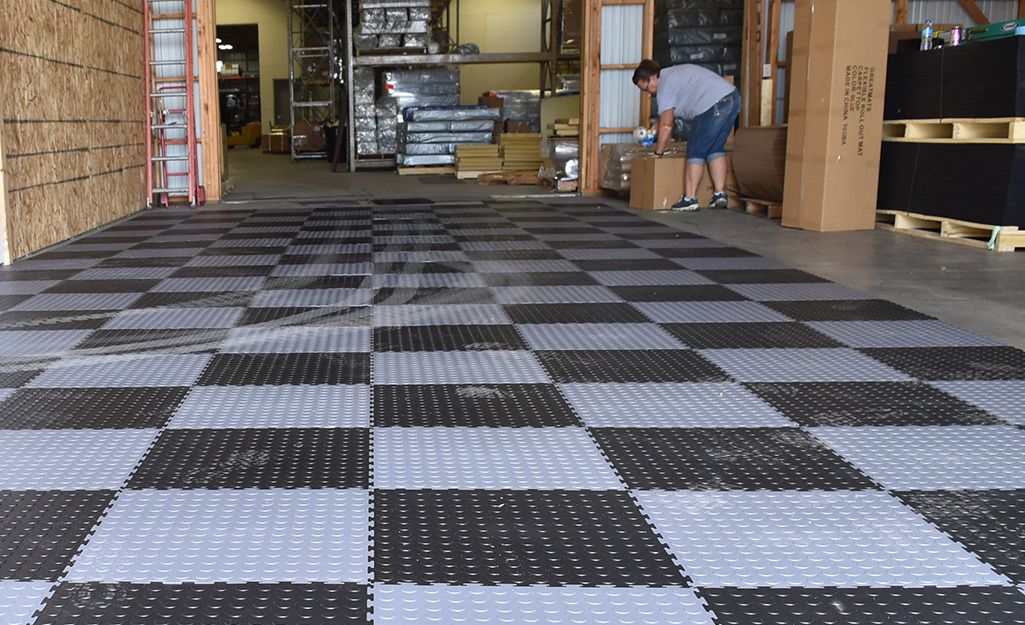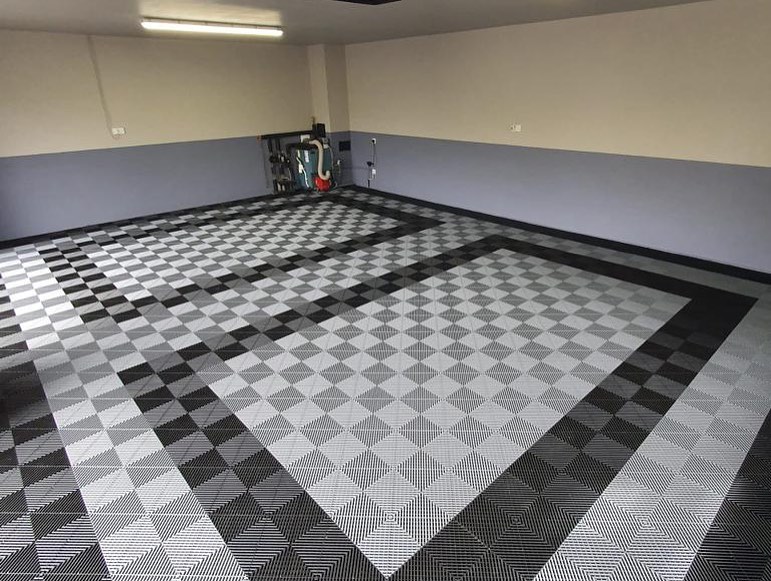Garage Floor Chandler AZ With various options available, including epoxy coatings, interlocking tiles, rubber mats, concrete sealers, and more, it’s essential to consider several factors to determine which material is best suited to your needs.

Here’s a comprehensive guide on how to choose the right garage floor material:
1. Assess Your Needs and Requirements:
Start by assessing your needs and requirements for the garage floor. Consider factors such as the primary use of the garage (parking, storage, workshop), the amount of foot and vehicle traffic, potential exposure to chemicals and spills, and your budget for the project. Identifying your specific needs will help narrow down your options and guide your decision-making process.
2. Consider Durability and Longevity:
Garage floors endure heavy wear and tear from vehicles, equipment, and foot traffic, so durability is a key consideration when choosing flooring material. Look for materials that are resistant to impacts, abrasion, stains, and chemicals to ensure long-term performance and longevity. Epoxy coatings, interlocking tiles, and rubber mats are known for their durability and strength, making them popular choices for garage floors.
3. Evaluate Maintenance Requirements:
Consider the maintenance requirements of different flooring materials and choose one that fits your lifestyle and maintenance preferences. Some materials, such as epoxy coatings and interlocking tiles, are easy to clean and maintain, requiring only periodic sweeping and mopping to keep them looking new. Others, such as concrete sealers and rubber mats, may require more frequent cleaning or occasional reapplication of protective coatings.
4. Think About Aesthetics and Design:
Garage floor materials come in a variety of colors, patterns, and finishes, allowing you to customize the look of your garage to match your personal style and preferences. Consider the aesthetic appeal of different materials and choose one that complements the overall design and decor of your home. Epoxy coatings offer endless design possibilities, including solid colors, metallic finishes, and decorative flakes, while interlocking tiles come in various patterns and colors to create custom designs.
5. Evaluate Installation Requirements:
Consider the installation requirements of different flooring materials and choose one that fits your DIY skills, time constraints, and budget. Some materials, such as interlocking tiles and rubber mats, are designed for easy DIY installation and can be installed in a single day with basic tools and equipment. Others, such as epoxy coatings and concrete sealers, may require professional installation due to their specialized application techniques and curing processes.
6. Factor in Cost and Budget:
Determine your budget for the garage floor project and compare the costs of different materials to find one that fits within your budget constraints. Keep in mind that while some materials may have a higher upfront cost, they may offer greater long-term value and durability, reducing the need for frequent repairs and replacements. Consider the overall cost of materials, installation, and maintenance when making your decision.
7. Consider Climate and Environmental Factors:
Take into account the climate and environmental conditions in your area when choosing garage floor material. Some materials, such as epoxy coatings and interlocking tiles, are resistant to temperature fluctuations, moisture, and UV exposure, making them suitable for use in various climates. Others, such as concrete sealers and rubber mats, may be more susceptible to damage from extreme temperatures or moisture levels.
8. Seek Professional Advice and Recommendations:
If you’re unsure about which garage floor material is best for your needs, seek advice and recommendations from professionals in the industry. Consult with flooring experts, contractors, or manufacturers to get insights into the pros and cons of different materials and help you make an informed decision. They can provide valuable guidance based on your specific requirements and budget.
Conclusion:
Garage Floor Chandler AZ Whether you opt for epoxy coatings, interlocking tiles, rubber mats, concrete sealers, or another material, selecting the right material will ensure a durable, functional, and visually appealing surface that enhances the value and usability of your garage space. By weighing the pros and cons of different materials and evaluating your specific needs, you can make an informed decision and enjoy a garage floor that meets your expectations for years to come.
The Garage Floor Company Arizona
2300 W Pecos Rd #126, Chandler, AZ 85224, United States
1-480-405-1661


